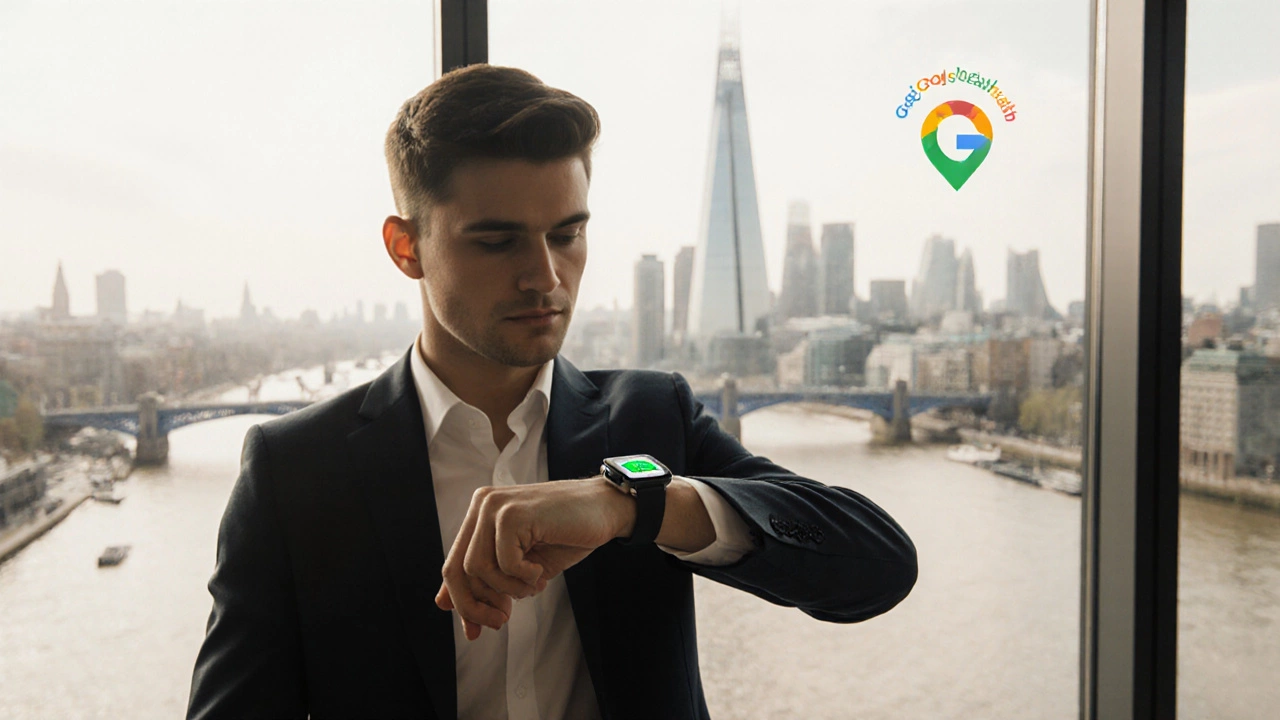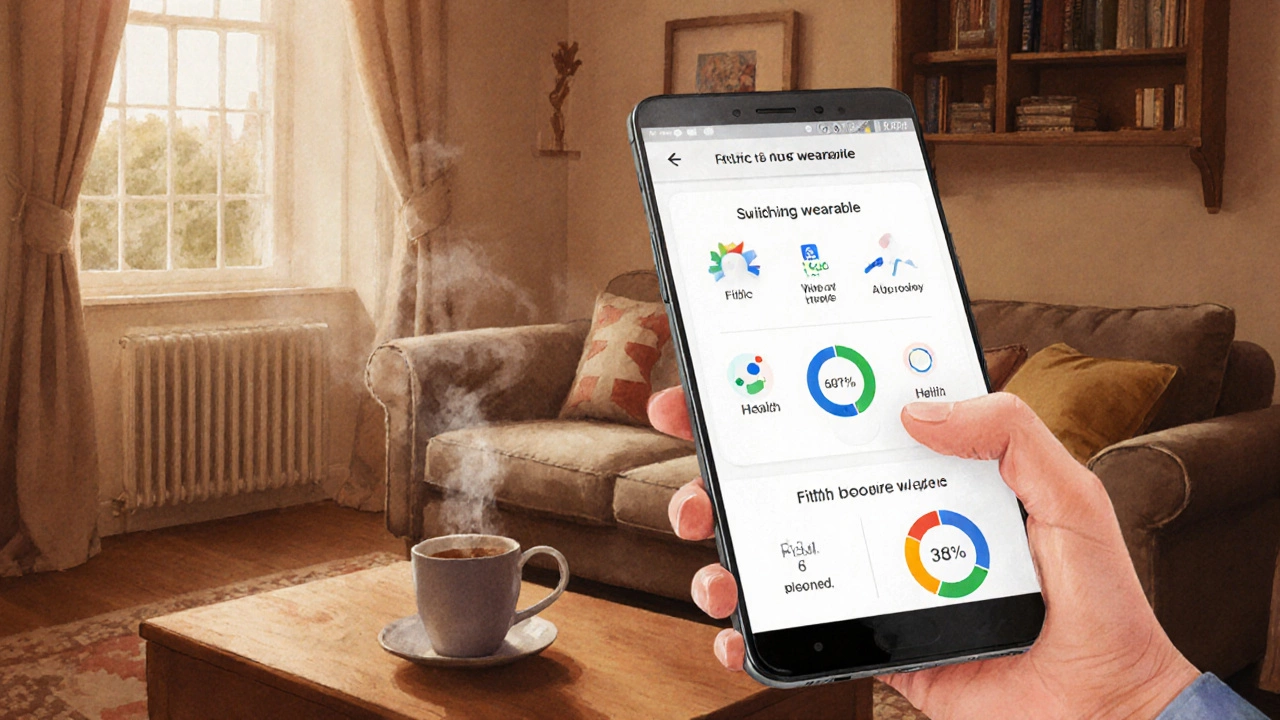Fitbit’s New Name in 2025: What It’s Called Now

Fitbit to Google Health Compatibility Checker
Enter details about your Fitbit device to check its compatibility with the new Google Health platform and see what features you'll retain or lose.
Compatibility Report
When you hear “Fitbit is a line of wearable fitness trackers and smartwatches that monitor activity, sleep, and heart‑rate”, you might wonder if the brand name is still the same. The answer is a clear Fitbit rebrand: in 2025 the whole portfolio was folded under the Google Health label.
Quick Take
- The Fitbit brand is now called Google Health across all markets.
- Rebrand launched in March2025 after a year‑long transition period.
- All older devices keep working; they receive a software‑only update.
- Google Fit app becomes the default companion, but the old Fitbit app still works for legacy users.
- Pricing, warranties and data policies stay tied to the original purchase.
What’s the new name?
Google announced that “Fitbit” will retire as a brand name and re‑emerge as “Google Health”. The change is not just cosmetic - it aligns the wearables with Google’s broader health‑tech ecosystem, including Google Fit, Nest Hub health dashboards, and the AI‑powered Care Insights platform.
From now on you’ll see packaging, marketing material, and the app store listings referencing Google Health. The hardware itself still bears the familiar silhouette, but the branding on the back of the device and the charging dock now reads “Google Health”.
Why did the change happen?
Several forces pushed the rebrand:
- Integration. Google bought Fitbit in 2021 for $2.1billion. Merging the two ecosystems reduces duplicated effort and lets engineers share data pipelines.
- Regulatory clarity. Health‑data regulations in the EU and US (like GDPR and HIPAA) require clear data‑ownership disclosures. A single “Google Health” umbrella simplifies compliance reporting.
- Market positioning. Competing against Apple Watch and Samsung Galaxy Watch, Google wants a brand that screams “comprehensive health platform”, not just “fitness tracker”.
- Consumer trust. Some users were skeptical about Google’s data motives. By creating a dedicated health brand, Google can promise stricter data‑use policies specific to health metrics.
Timeline of the rebrand
The rollout was phased to avoid shocking users.
| Quarter | Key Actions |
|---|---|
| Q42023 | Internal migration of data pipelines to Google Cloud. |
| Q22024 | Beta testing of “Google Health” UI on select Fitbit devices. |
| Q42024 | Regulatory review and approval in EU, US, and APAC. |
| Q12025 | Announcement and brand‑asset switch on website and social channels. |
| Q12025 (March) | Public launch - new app store listings, packaging, and website. |
| Q32025 | Full migration of user accounts to Google Health backend. |

What happens to existing devices?
If you own a Charge5, Versa3, or even an older Inspire2, you’re not forced to buy new hardware. Google pushed a firmware update that re‑labels the device in the system settings. The battery life, sensors, and accuracy remain unchanged.
However, some premium features - like the new Stress‑Management AI Coach - are only unlocked on devices released after 2023. Older models will continue to receive security patches but won’t gain the newest health‑insights modules.
How to update your app and services
Transitioning is straightforward:
- Open the Play Store (Android) or App Store (iOS) and look for “Google Health”.
- If you already have the Fitbit app, you’ll see a notification prompting you to “Migrate to Google Health”. Tap it.
- Sign in with your existing Google account - the same one used for Fitbit.
- Allow the app to sync your health data. Google Health will import all historic workouts, sleep logs, and heart‑rate trends.
- Optional: Enable “Data‑Sharing with Google Fit” for a unified dashboard across all Google health devices.
For users who prefer to keep the legacy app, Google will keep the Fitbit app available for at least two years, but new features will stop arriving after December2025.
Comparison: Old Fitbit vs New Google Health
| Feature | Fitbit (pre‑2025) | Google Health (2025) |
|---|---|---|
| Branding | Fitbit | Google Health |
| Companion App | Fitbit app (iOS/Android) | Google Health app (merged with Google Fit) |
| AI Coach | Basic activity suggestions | Context‑aware Stress‑Management and Nutrition Coach |
| Data Export | CSV, JSON via web portal | Direct export to Google Sheets and BigQuery |
| Health‑Regulatory Compliance | GDPR‑compliant | HIPAA‑eligible (US) and GDPR‑enhanced |
| Device Compatibility | All Fitbit models | All Fitbit models + new Google Health‑branded wearables |
Is the new brand worth the switch?
For most casual users, the change is seamless - you’ll still track steps, sleep, and heart rate just as before. The real value shows up if you dive into the expanded AI health insights, which pull data from Google Fit, Nest Hub, and even Google Assistant voice logs.
Power users who love third‑party integrations may notice a learning curve. The new Google Health API uses OAuth2.0 scopes that differ from the old Fitbit Developer Platform, so existing apps need a quick update.
In short, if you’re already invested in the Google ecosystem (Pixel phone, Nest devices, YouTube Premium), the rebrand feels like a natural upgrade. If you prefer a vendor‑agnostic approach, you might keep the legacy app or consider alternatives like Garmin or Apple.
Alternatives to consider
Thinking about switching? Here are three competitors that keep the original brand name and offer comparable health tracking:
- Garmin Venu 2 - excellent GPS accuracy, long battery life, and a robust ecosystem for serious athletes.
- Apple Watch Series 9 - deep integration with iOS, ECG, BloodOxygen, and a thriving App Store.
- Xiaomi MiBand 8 - budget‑friendly, reliable step counting, and a solid community of third‑party scripts.
Each of these devices still exports data in standard formats, so moving away from Google Health won’t lock you out of your health history.

Frequently Asked Questions
Will my Fitbit warranty change after the rebrand?
No. All existing warranties stay tied to the original purchase date and are honored under the same terms, even though the brand name on the paperwork now reads “Google Health”.
Can I still use the Fitbit app on my old phone?
Yes. Google will keep the Fitbit app available in the stores until at least December2025, but new updates and features will stop after that date.
Is my health data safe with Google Health?
Google Health complies with GDPR in Europe and is HIPAA‑eligible in the United States. The company has published a dedicated data‑use policy that restricts health data to medical‑related services only.
Do I need to buy a new device to get the AI Coach?
The AI Coach is available on any Fitbit device that received the 2025 firmware update, but full functionality (like nutrition suggestions) requires a hardware sensor that was introduced in 2023. Older models will show a limited version.
How do I delete my data if I don’t want it in Google’s servers?
Open the Google Health app, go to Settings → Privacy → Delete Account Data. The process removes all synced metrics from Google’s cloud while preserving data stored locally on the device.
Bottom line: the Fitbit name may have vanished, but the core tracking experience lives on under Google Health. Whether you embrace the new ecosystem or stick with the legacy app, your fitness data remains yours.